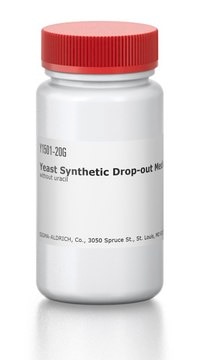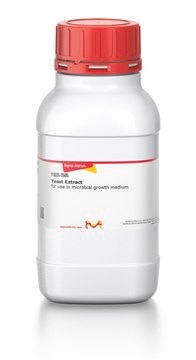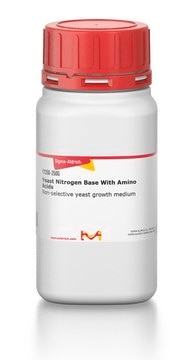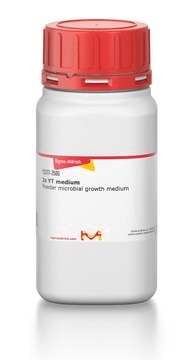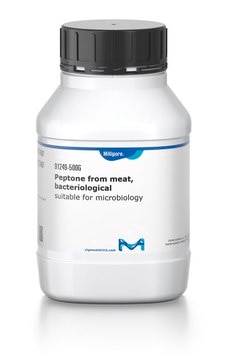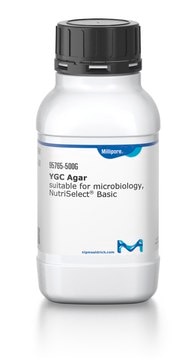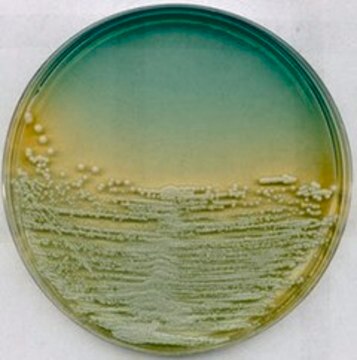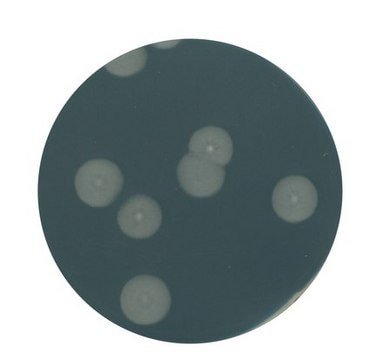Y1500
YPD Agar
Synonym(s):
Yeast Extract Peptone Dextrose Agar, YEPD Agar
About This Item
Recommended Products
form
powder
Quality Level
composition
Agar, 15 g/L
Bacteriological peptone, 20 g/L
Glucose, 20 g/L
Yeast extract, 10 g/L
application(s)
food and beverages
suitability
nonselective for Candida spp.
nonselective for Pichia spp.
nonselective for Saccharomyces spp.
nonselective for Zygosaccharomyces spp.
Related Categories
General description
Application
- to cultivate S. cerevisiae strains to find a long-term preservation method for a deep space biosensor mission
- for yeast strains in in vitro broth microdilution (BMD) based on minimum inhibitory concentration (MIC)
- for Zymoseptori triciti strains for virulence studies
Preparation Note
2. Heat to boiling while stirring to dissolve all ingredients completely.
3. Autoclave for 15 minutes at 121°C.
Storage Class
11 - Combustible Solids
wgk_germany
WGK 3
flash_point_f
Not applicable
flash_point_c
Not applicable
ppe
Eyeshields, Gloves, type N95 (US)
Choose from one of the most recent versions:
Certificates of Analysis (COA)
Sorry, we don't have COAs for this product available online at this time.
If you need assistance, please contact Customer Support.
Already Own This Product?
Find documentation for the products that you have recently purchased in the Document Library.
Customers Also Viewed
Articles
Technical Article on yeast media. Yeasts are eukaryotic microorganisms whose genomes have been comprehensively studied and some have been sequenced.
Protocols
Yeasts are considered model systems for eukaryotic studies as they exhibit fast growth and have dispersed cells. Yeast cultures can be grown, maintained, and stored in liquid media or on agar plates using techniques similar to those for bacterial cultures.
Our team of scientists has experience in all areas of research including Life Science, Material Science, Chemical Synthesis, Chromatography, Analytical and many others.
Contact Technical Service

